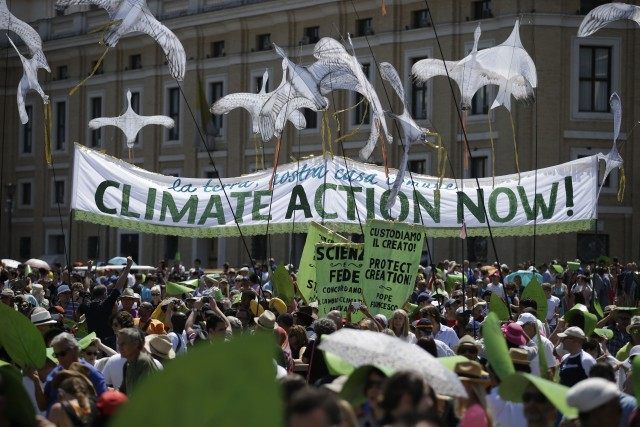One of Britain’s leading energy experts has written to the Foreign Secretary to strongly criticise the appointment of Sir David King, the government’s former Chief Scientific Advisor, as Britain’s representative at the upcoming international Climate Conference in Paris.
Alex Henney, a leading figure in Britain’s energy sector, denounced Professor King as someone who “knows very little about climate science and has a track record of naïve alarmism, if not semi hysteria,” before listing many examples of Professor King’s errors of judgement.
In a letter to the Foreign Secretary, Philip Hammond, which has been published in full on the Not A Lot Of People Know That blog, Mr Henney has listed a number of those errors. They include an incident in 2004 in which Prof King, at the time the Government’s chief advisor, attended an international seminar organised by the Russian Academy of Sciences in Moscow, where his first act was to claim “that two thirds of the invitees were “undesirable” and should not be allowed to speak.” He then went to put pressure on Tony Blair, the Prime Minister of the time, to put pressure on the Russian government to ban those he did not want speaking.
He then walked out of the seminar after he was unable to answer a question on the melting of snow on Mount Kilimanjaro.
At the conclusion of the seminar, Alexander Illarionov, Chief Economic adviser to Putin, gave an angry press conference, the text of which is included in Mr Henney’s letter, in which illarionov stated:
“These papers [presented by King and his team] differed dramatically from what is usually offered at international congresses and conferences. Simultaneously, they revealed an absolute – and I stress, absolute – inability to answer questions concerning the alleged professional activities of the authors of these papers. Not only the ten questions that were published nine months ago, but not a single question asked during this two-day seminar by participants in the seminar, both Russian and foreign, were answered…
“The British participants insisted on introducing censorship during the holding of this seminar. The chief science adviser to the British government, Mr. King, demanded in the form of an ultimatum at the beginning of yesterday that the program of the seminar be changed and he presented an ultimatum demanding that about two-thirds of the participants not be given the floor…
“…where questions on professional topics were asked, and being unable to answer these questions, Mr. King and other members of the delegation, turned to flight, as happened this morning, when Mr. King, in an unprecedented incident, cut short his answer to a question in mid-sentence realising that he was unable to answer it and left the seminar room.
“It is not for us to give an assessment to what happened, but in our opinion the reputation of British science, the reputation of the British government, and the reputation of the title “Sir” has sustained heavy damage.”
Mr Henney further lists a number of basic scientific and factual errors on the part of Prof King, both in his book ‘The Hot Topic’ and in his wider work. For example, at a presentation at the London School of Economics which Mr Henney attended, Prof King “showed a slide of CO2 levels and global temperatures over many millennia which was supposed to show the effect of higher CO2 levels on increasing temperature. But the temperatures increased before the CO2 levels increased,” Mr Henney writes, adding: “Cause does not follow effect.”
“Professor King is – or was – supposed to be a scientist. He should therefore be aware of Richard Feynman’s observation: “It doesn’t matter how beautiful your theory is. It doesn’t matter how smart you are, if it doesn’t agree with experiment, it’s wrong”,” Mr Henney notes.
He concludes: “As a citizen and taxpayer I take strong exception to Professor King representing me. His track record shows that he does not know what he is talking about, lacks judgment of reality, and appears to be intolerant of other’s views.”

COMMENTS
Please let us know if you're having issues with commenting.